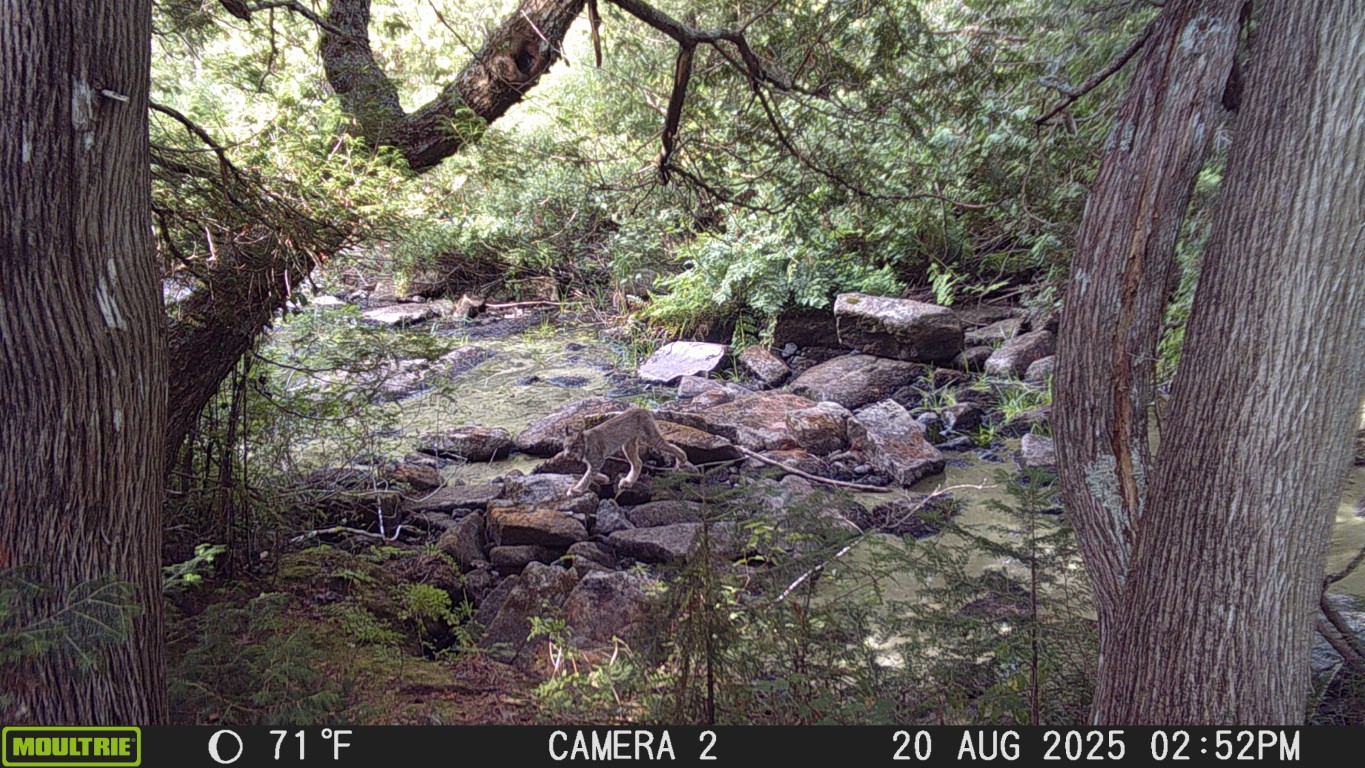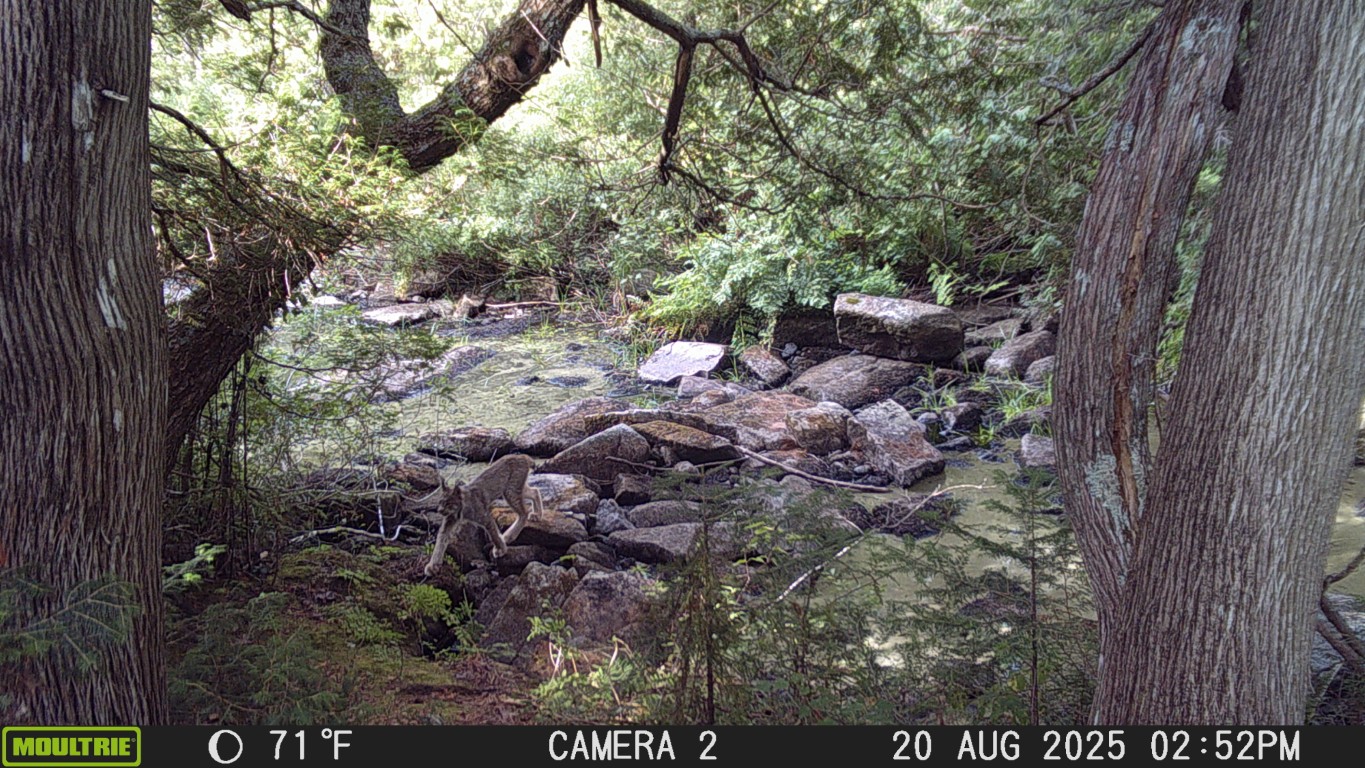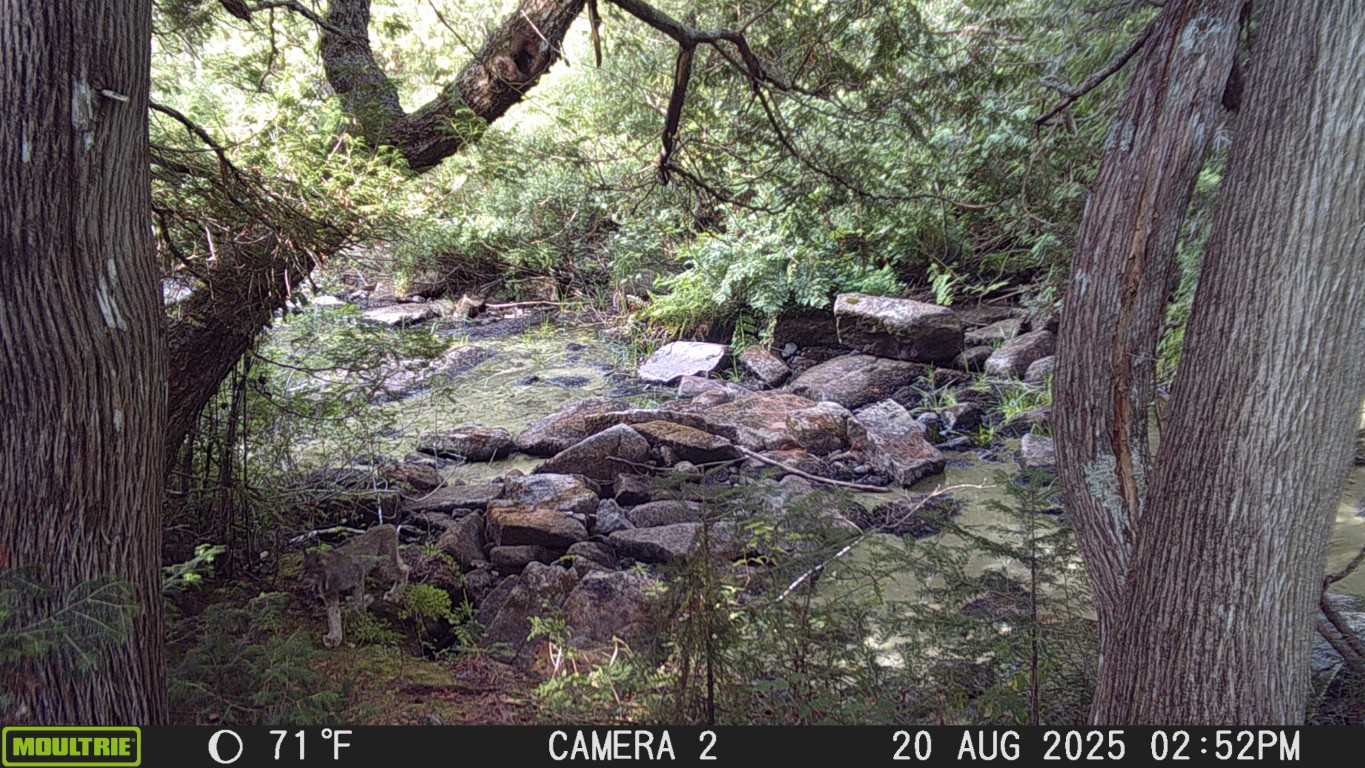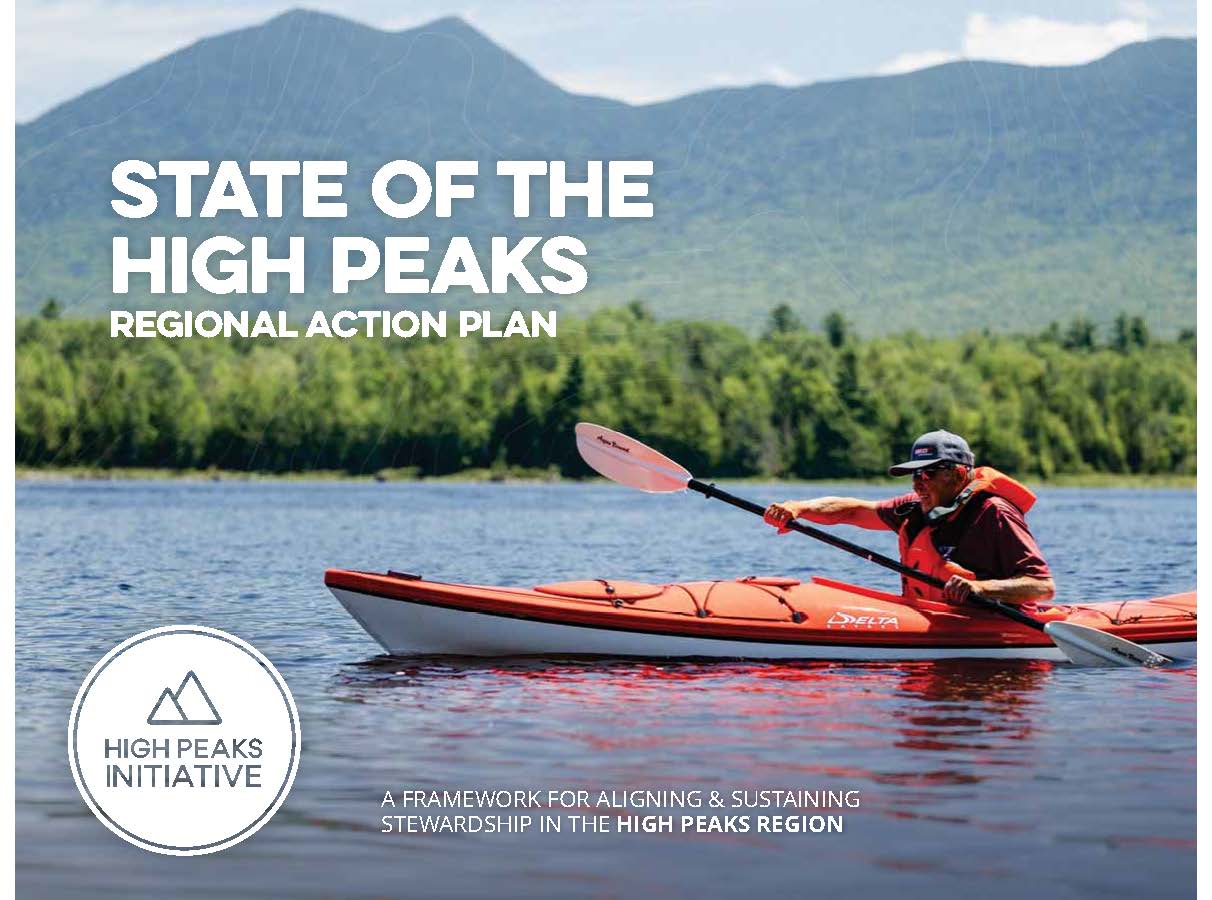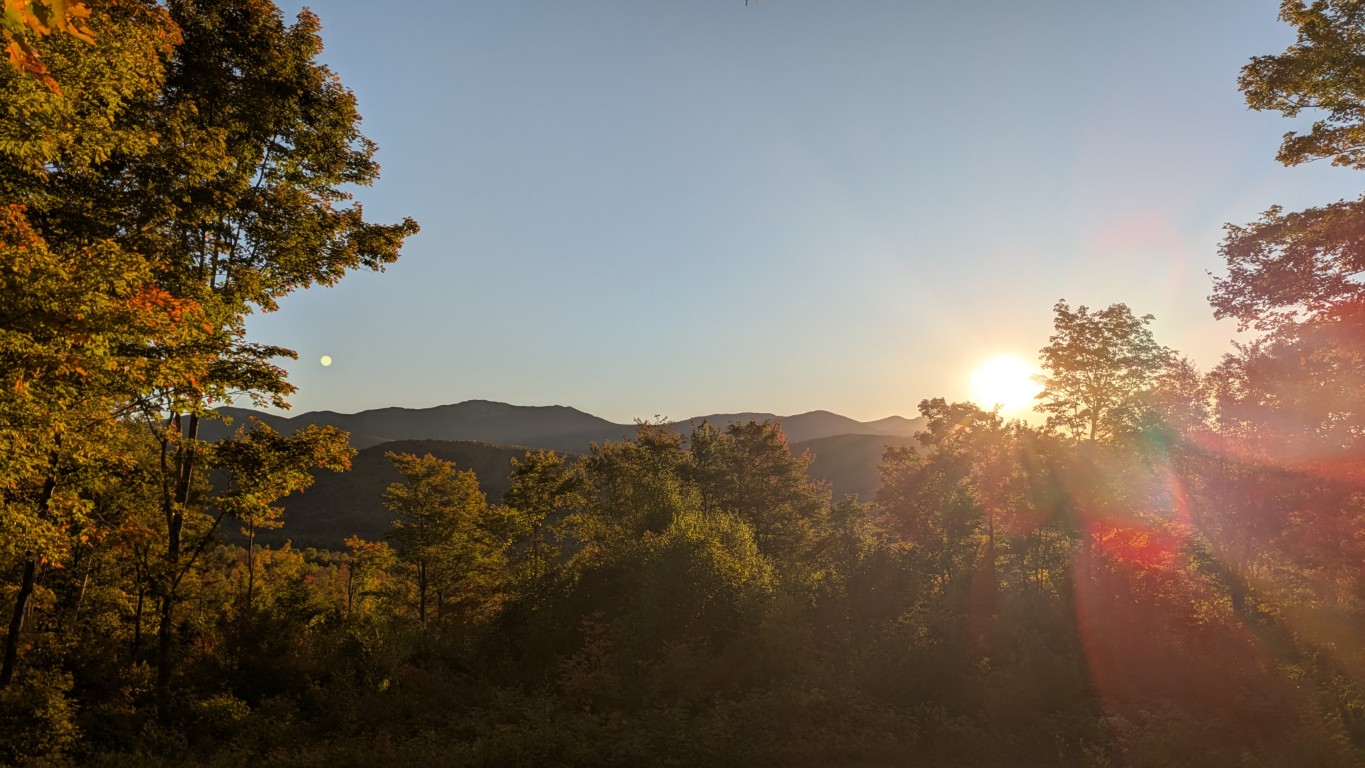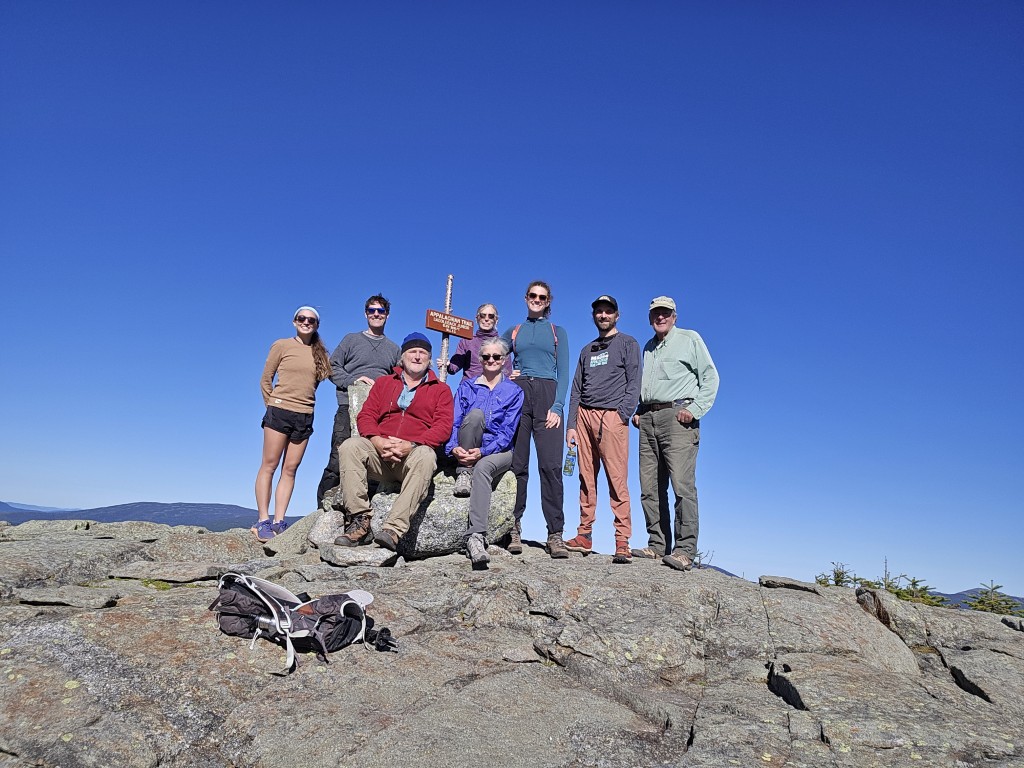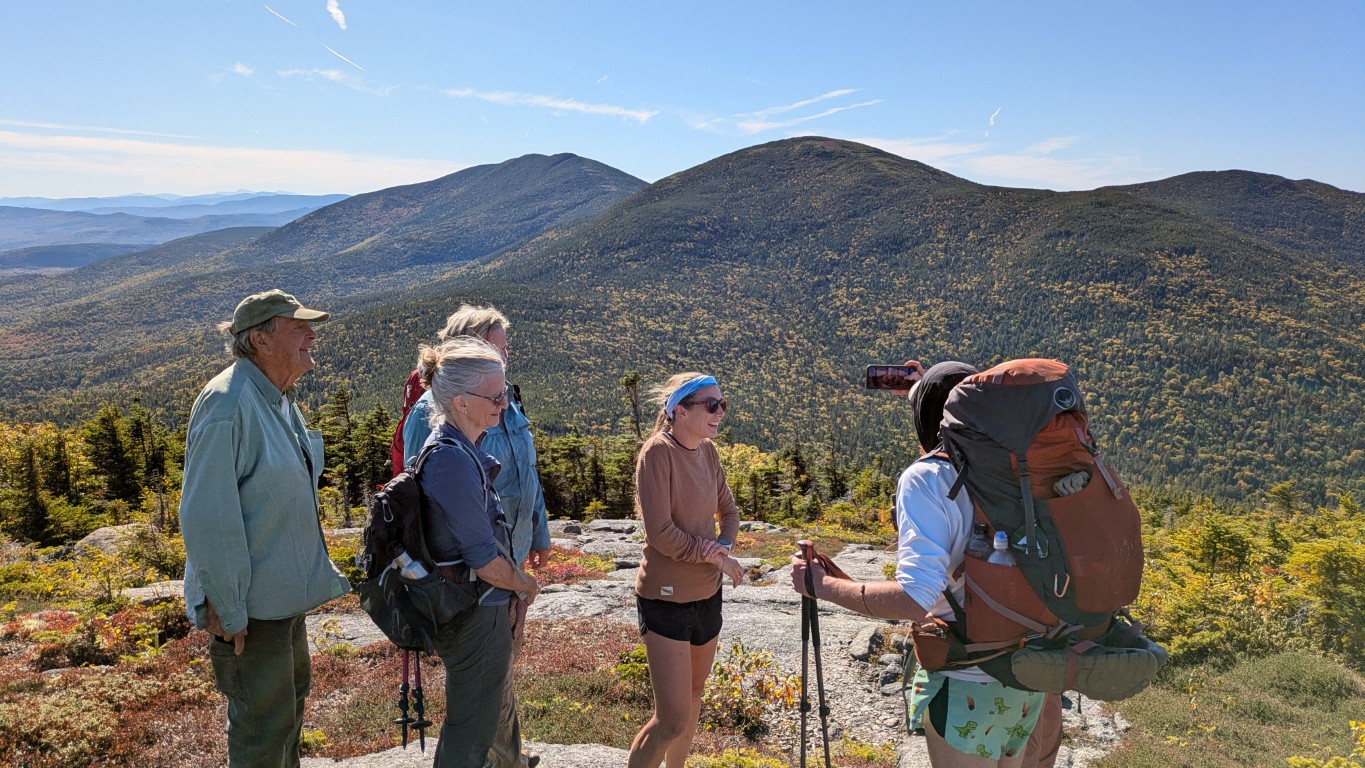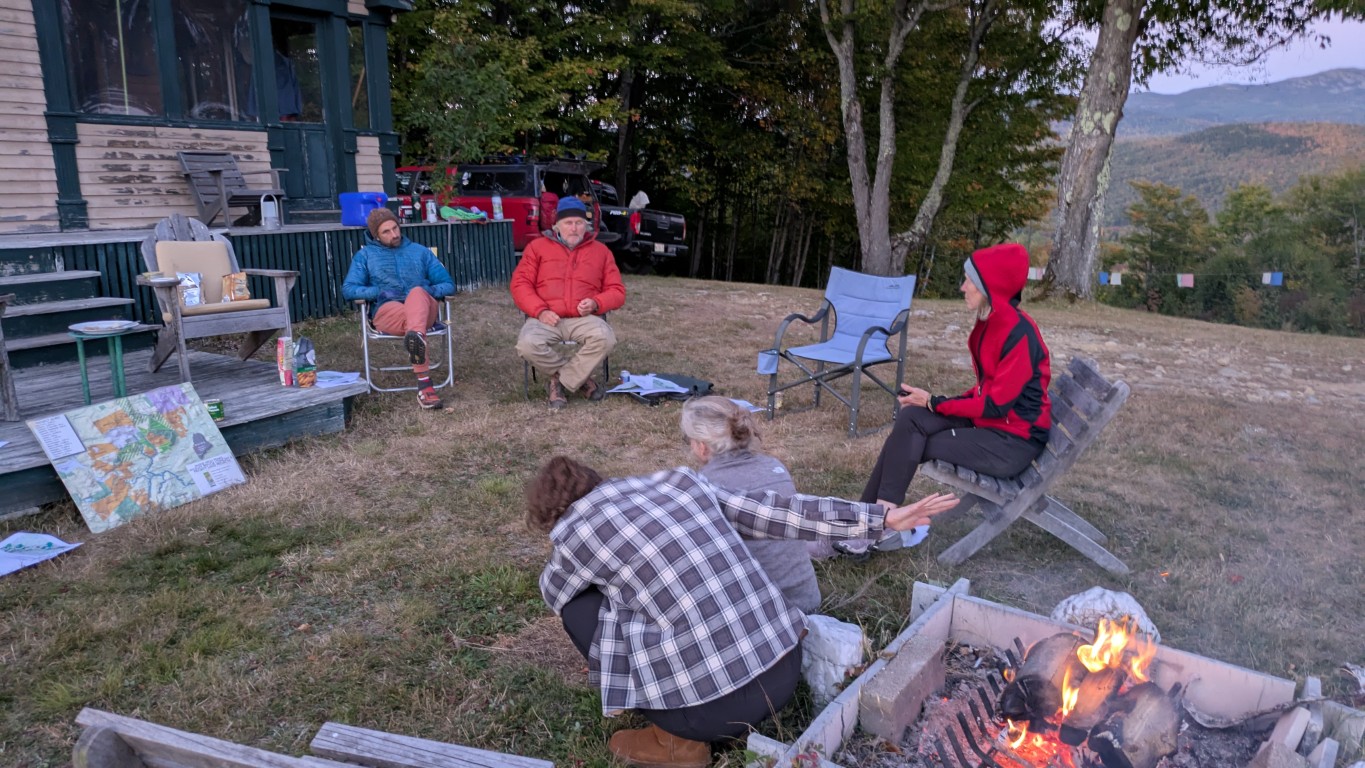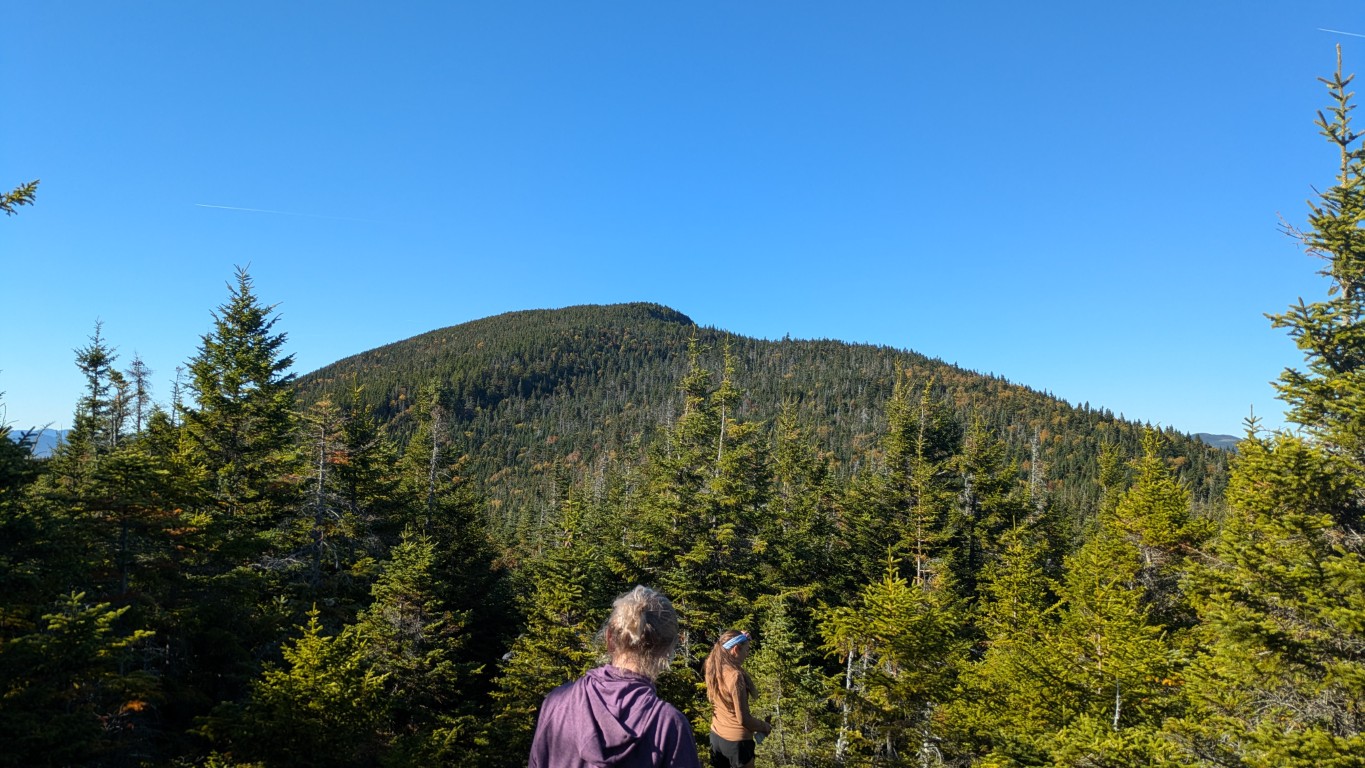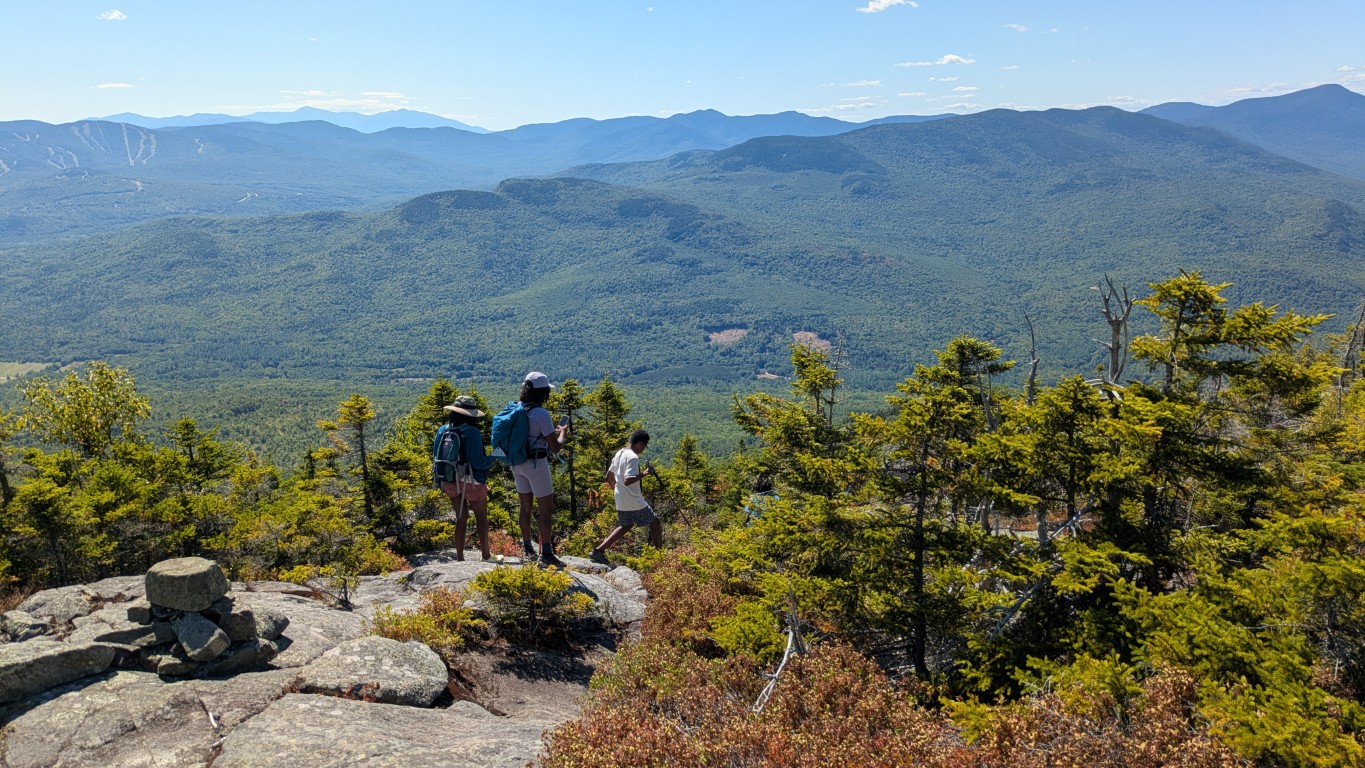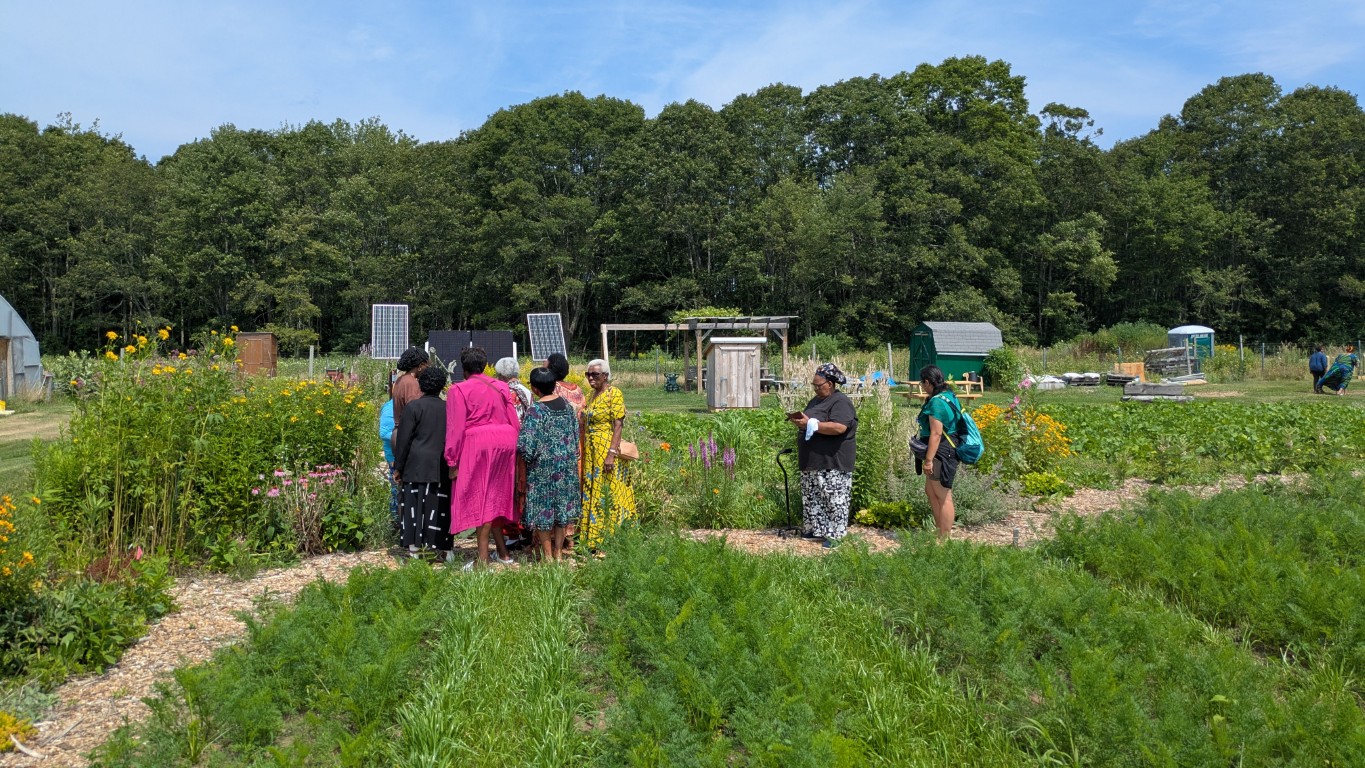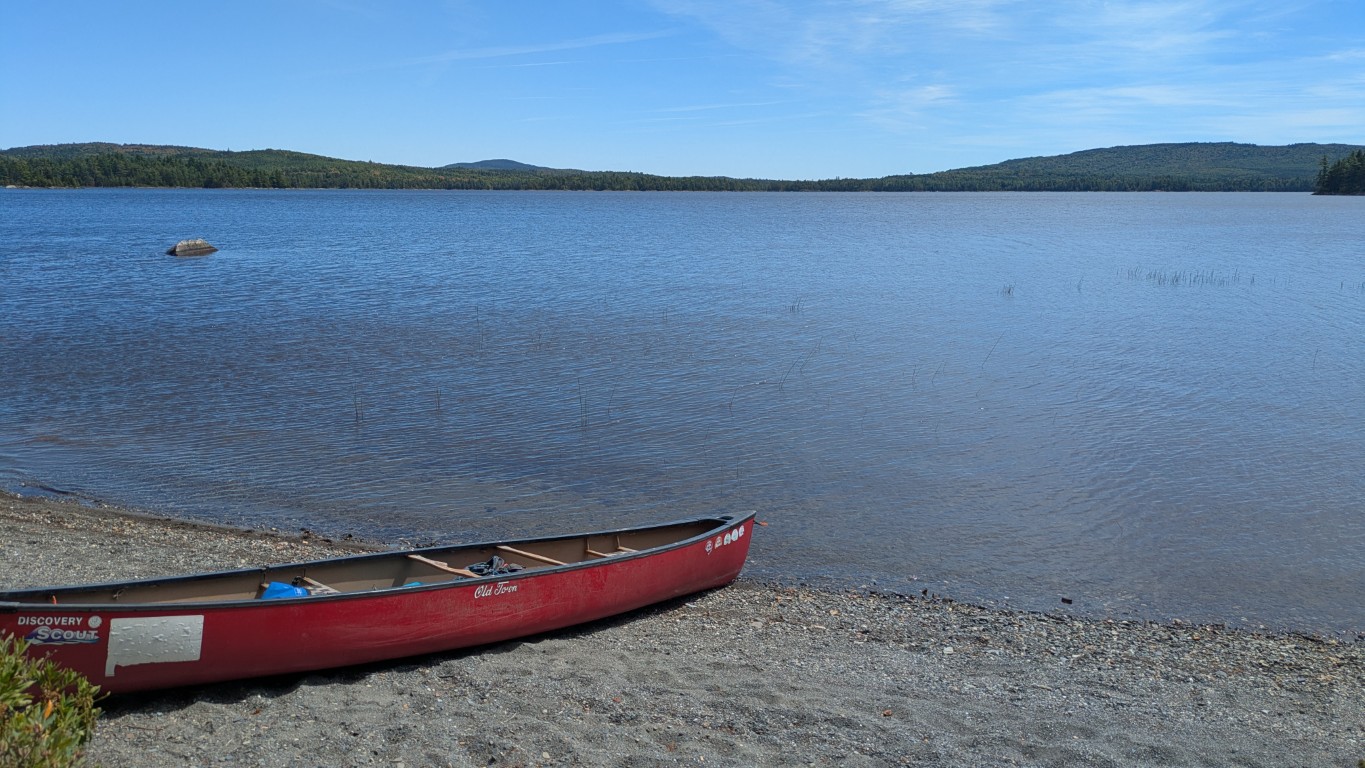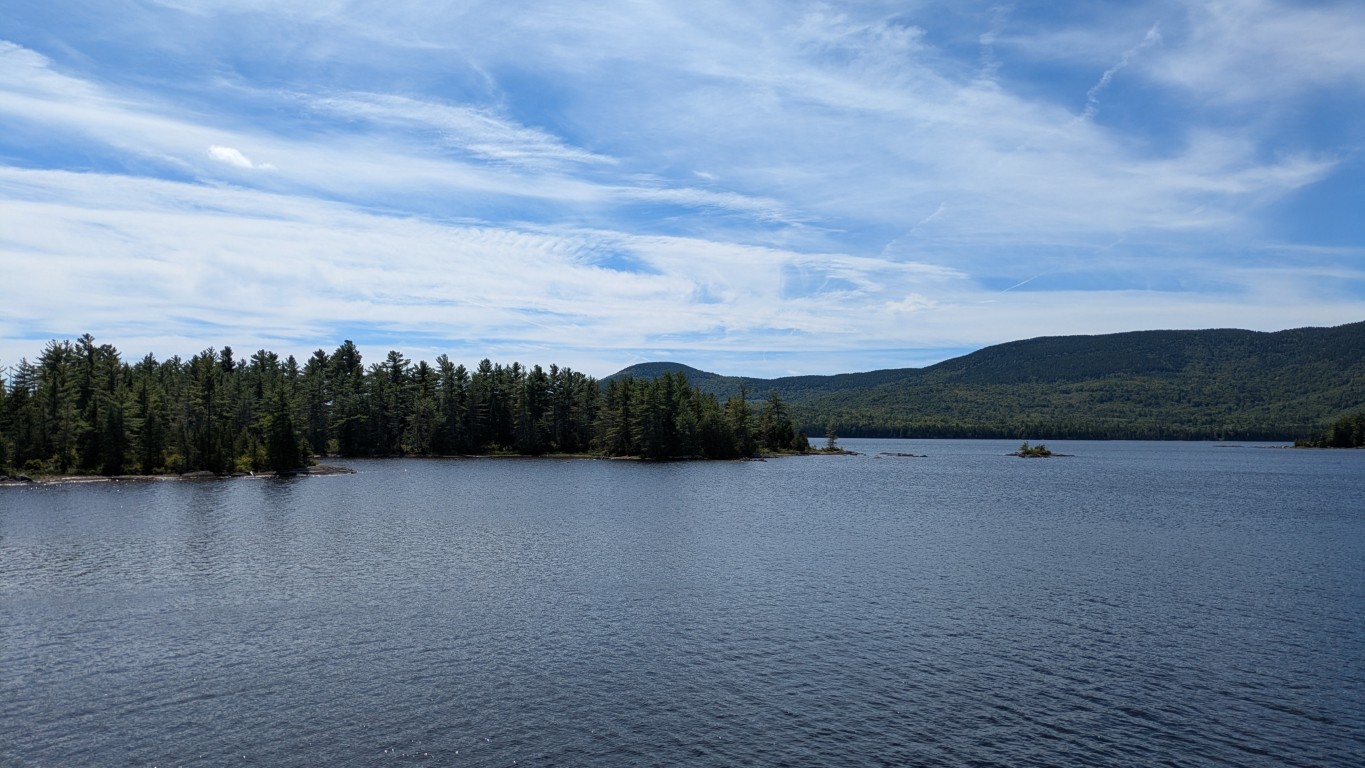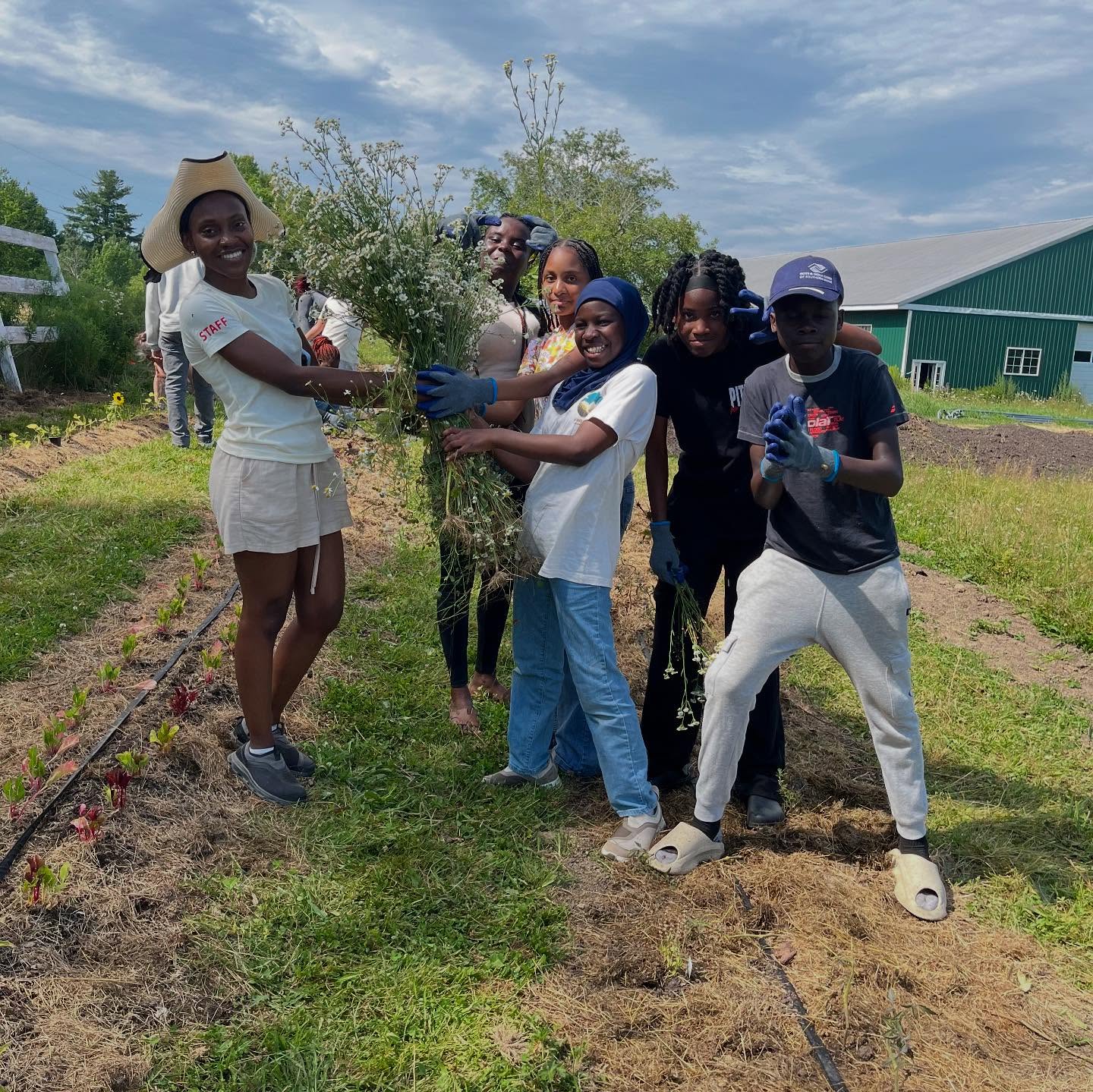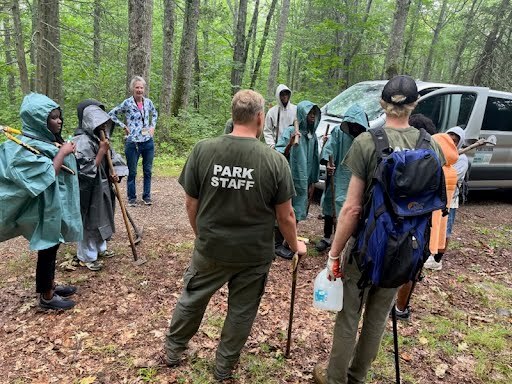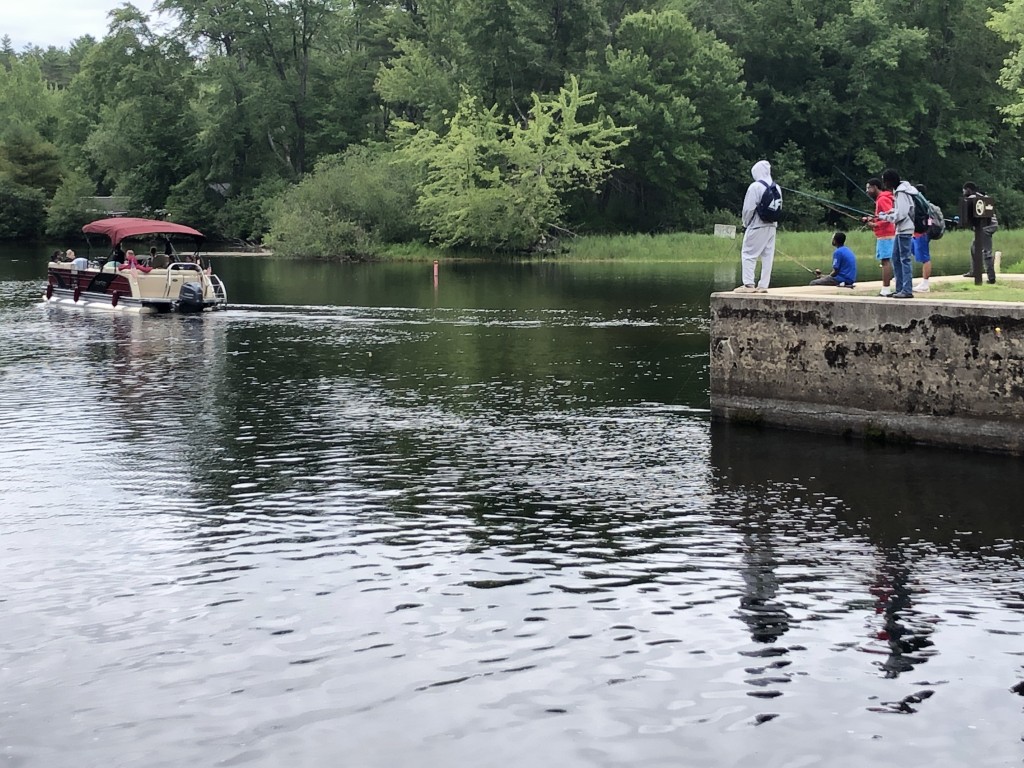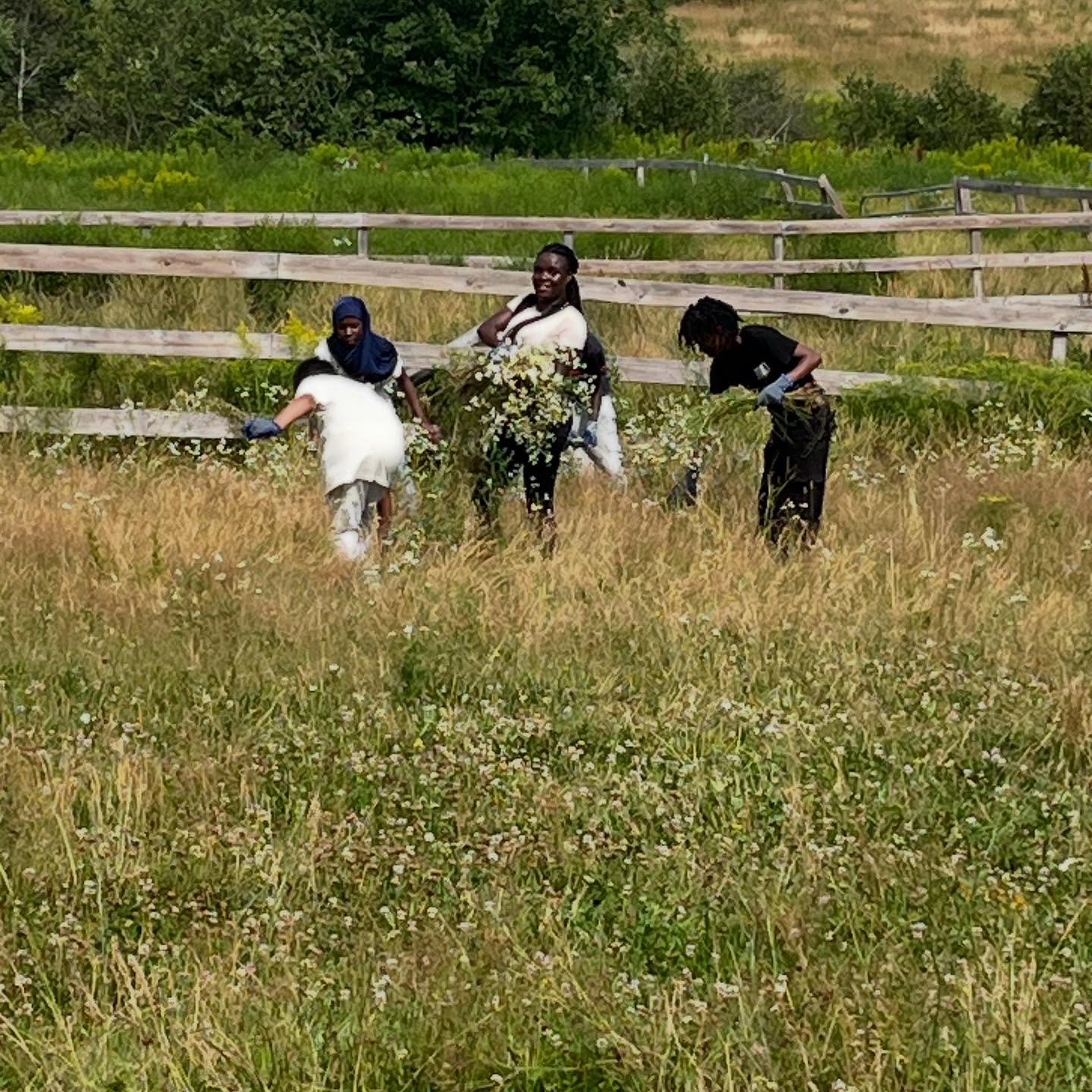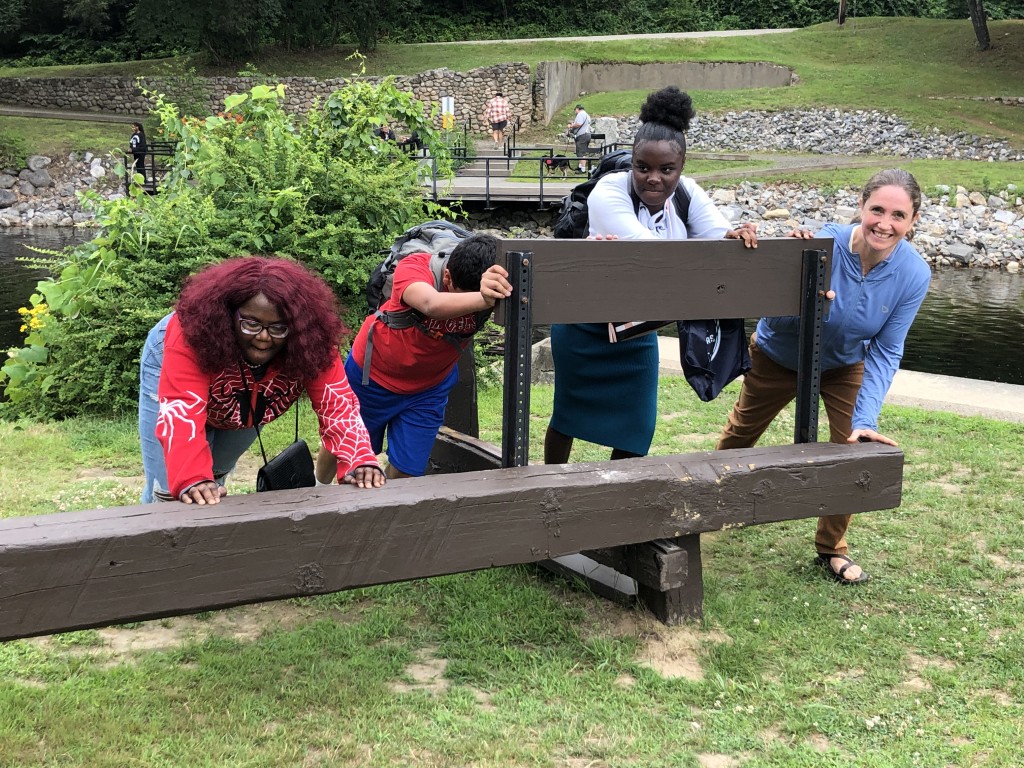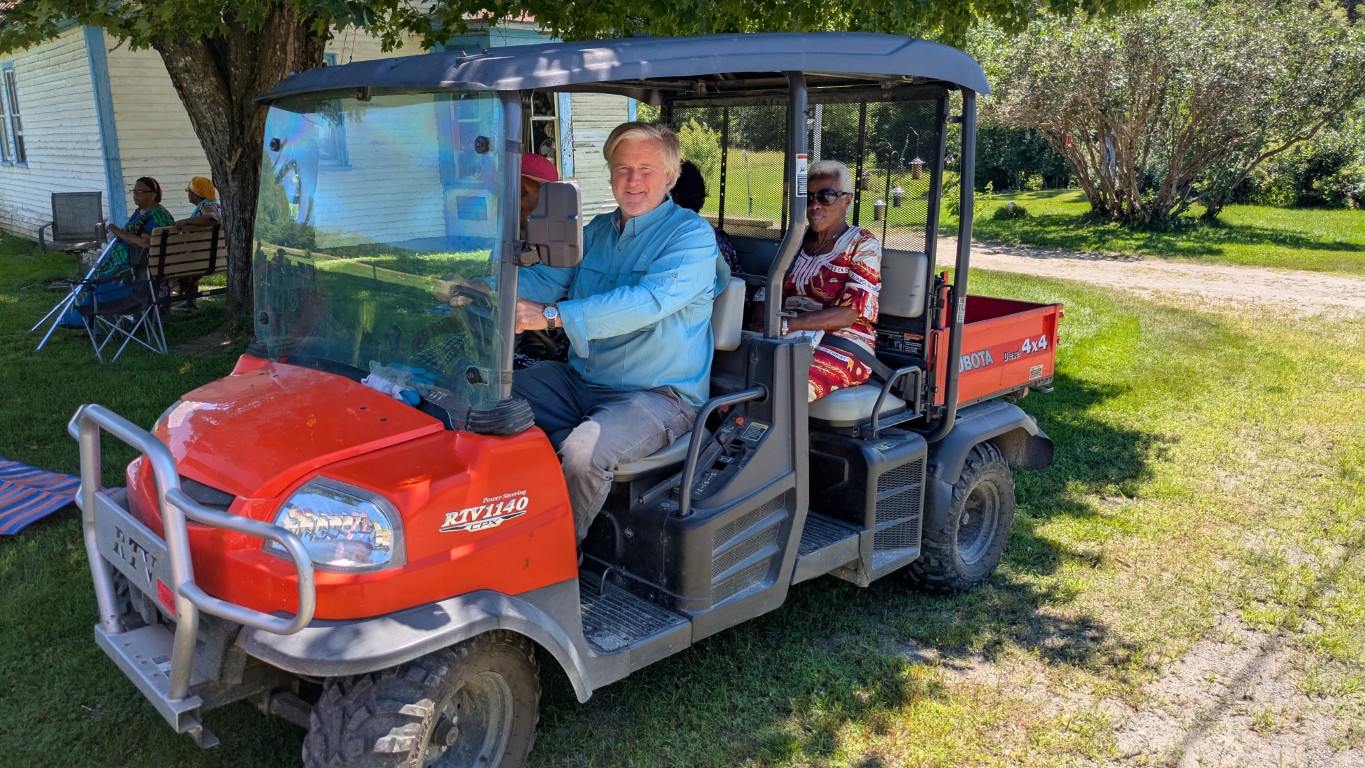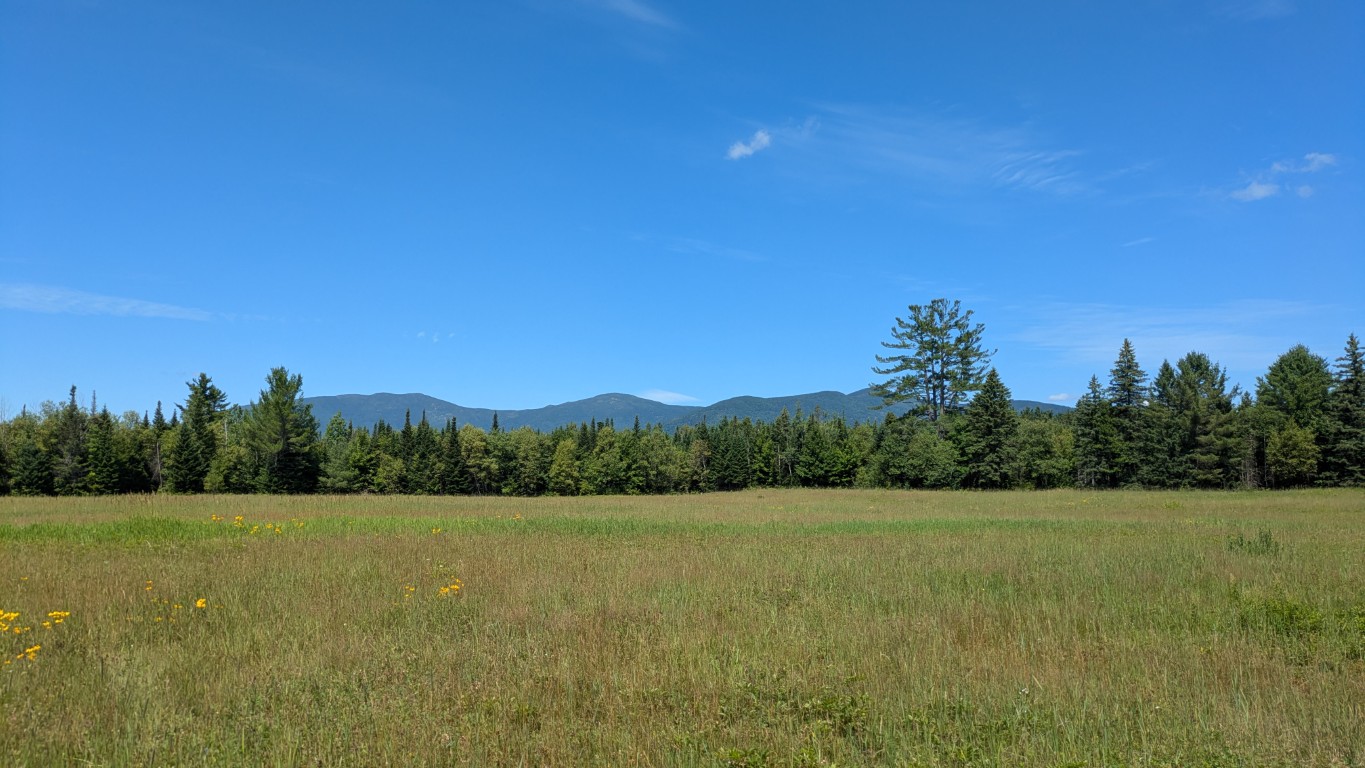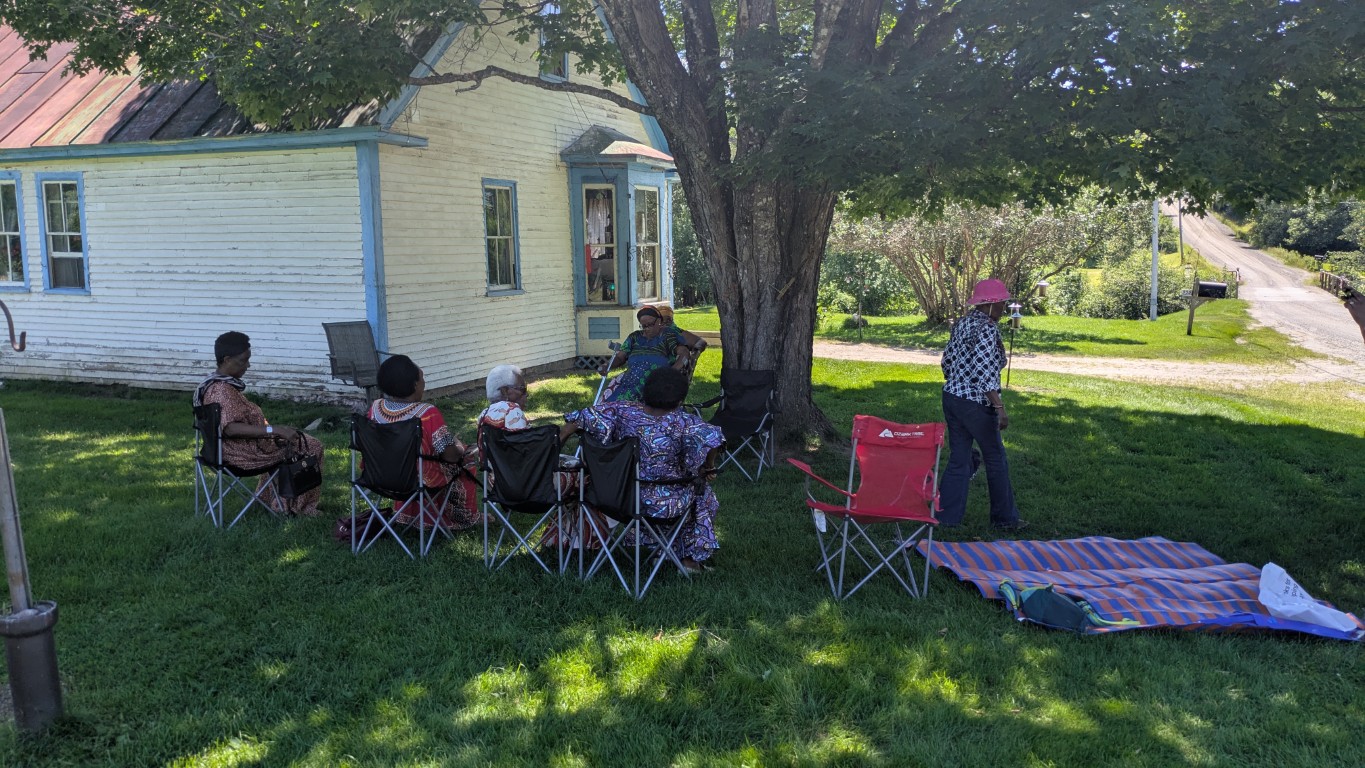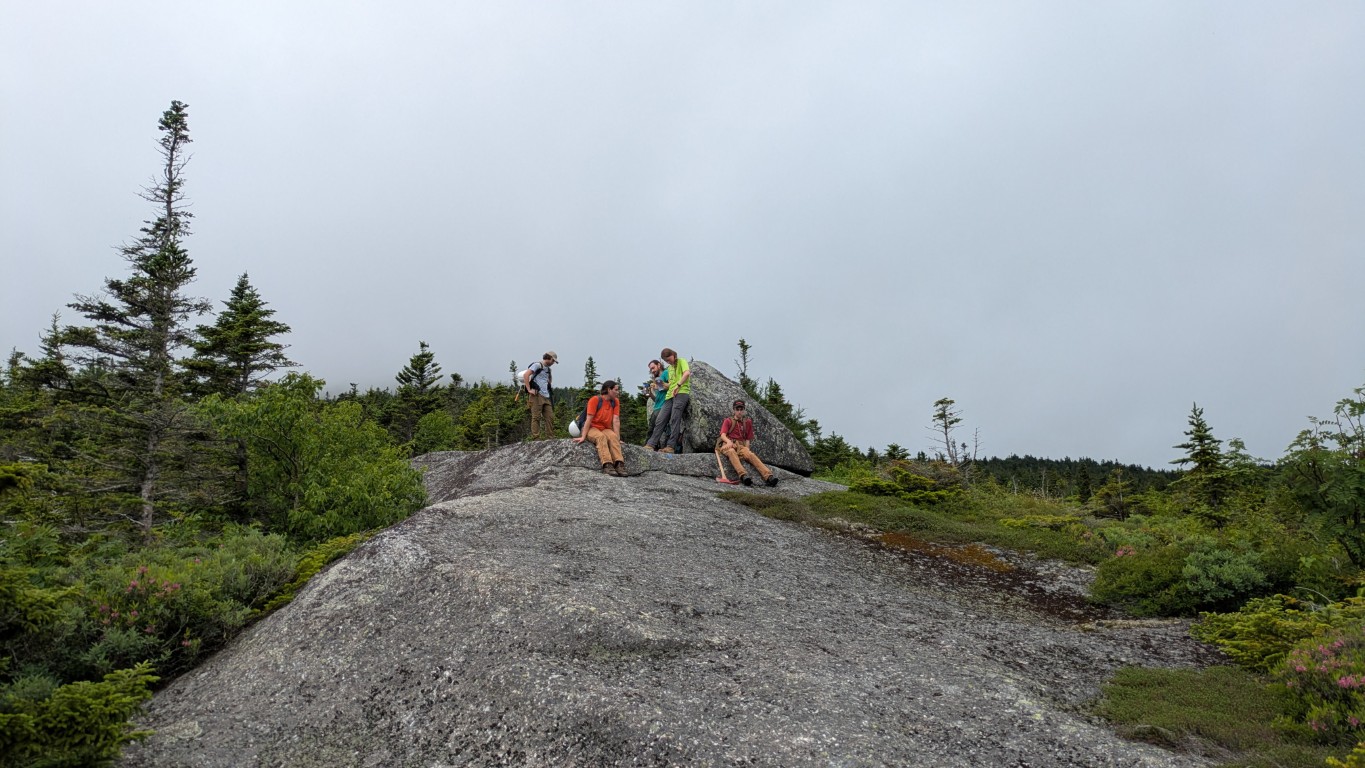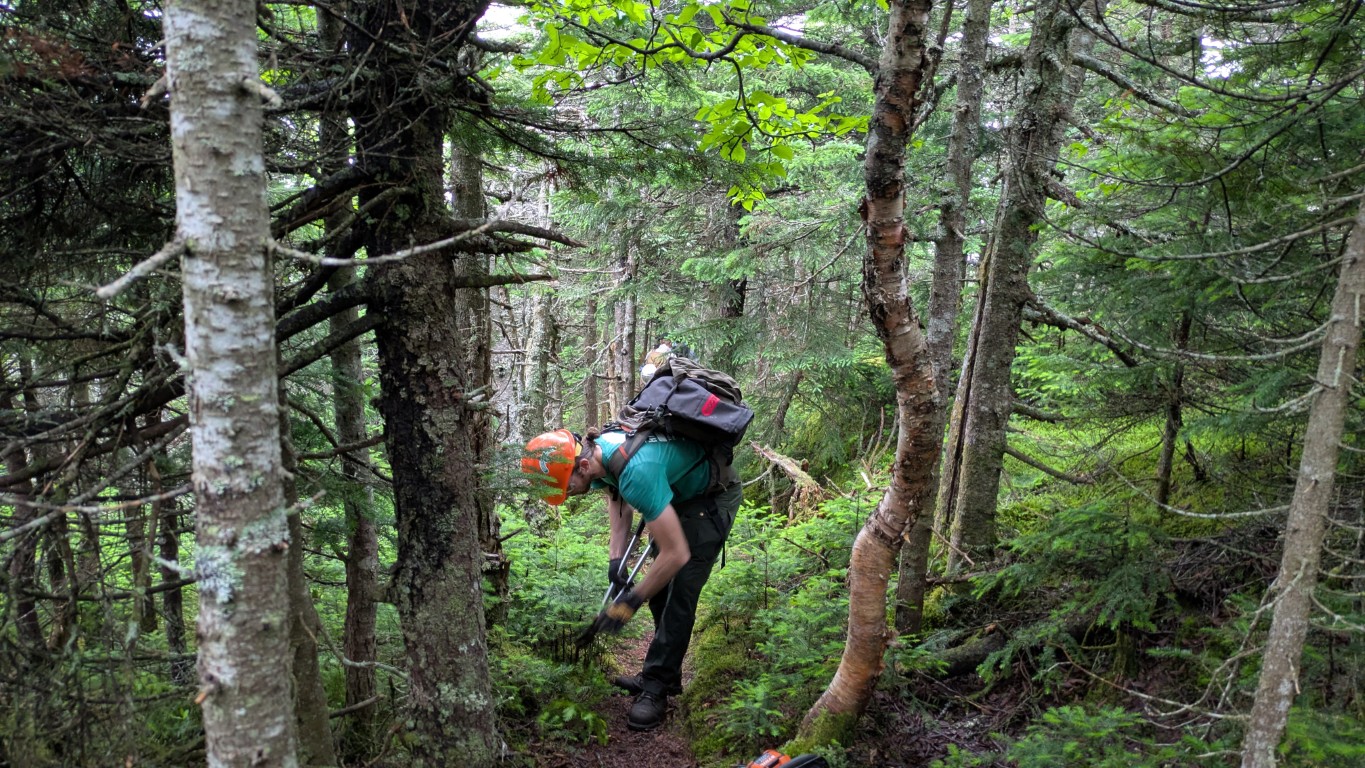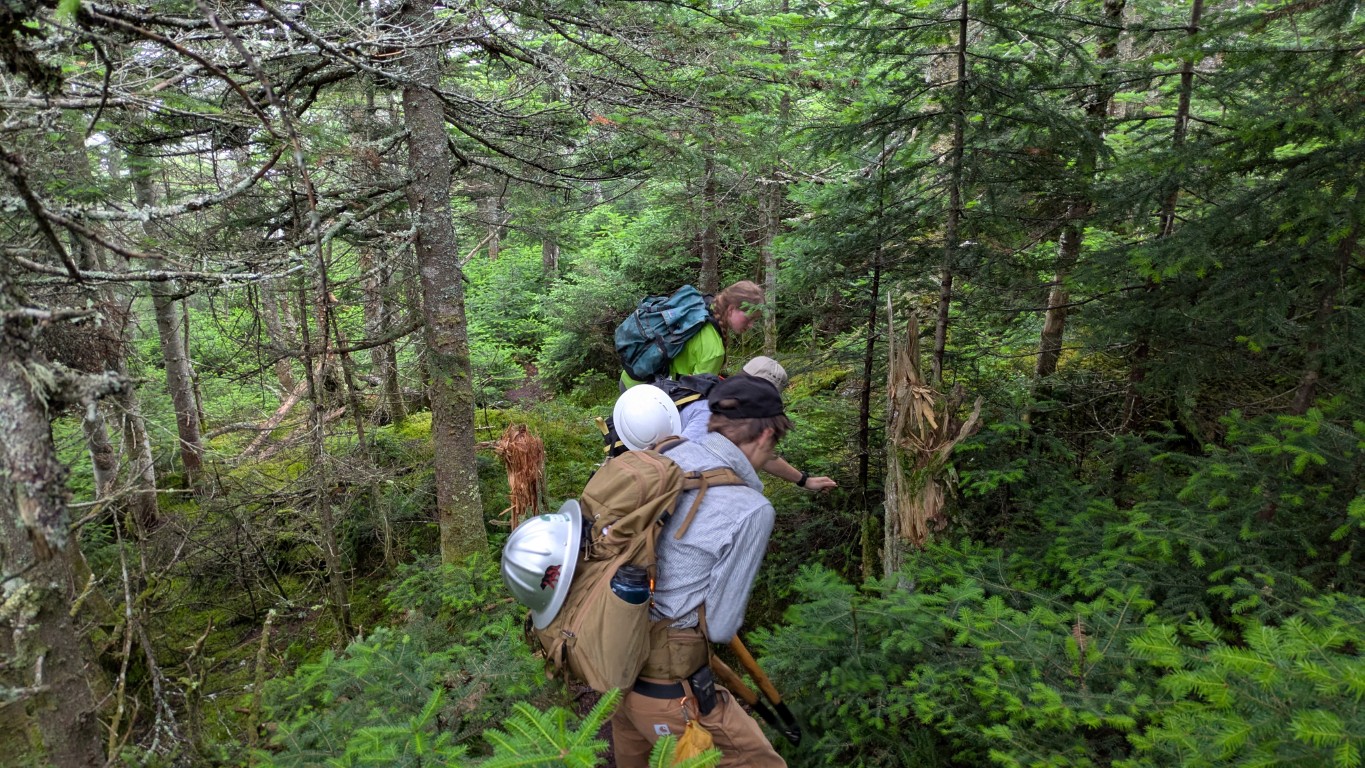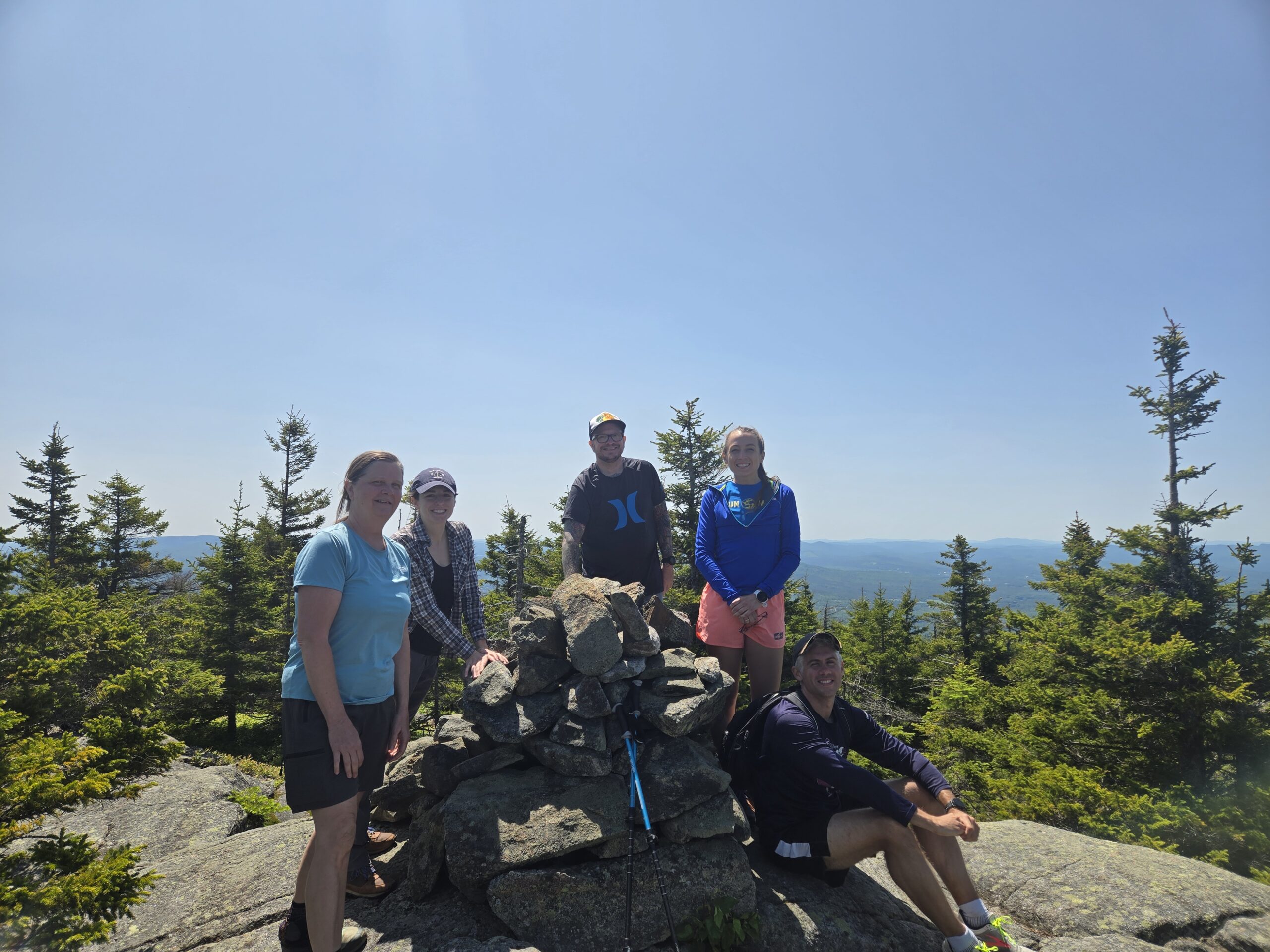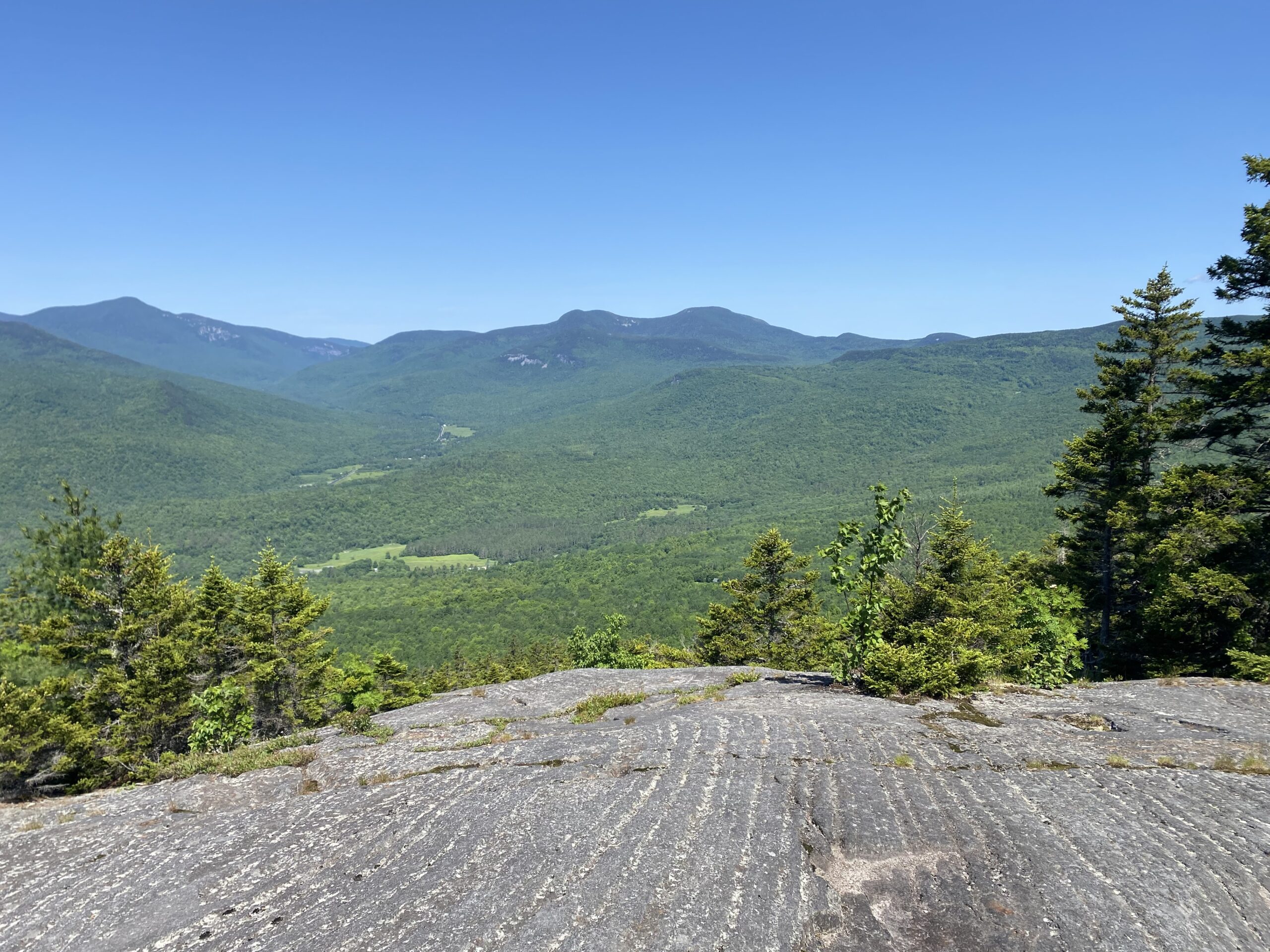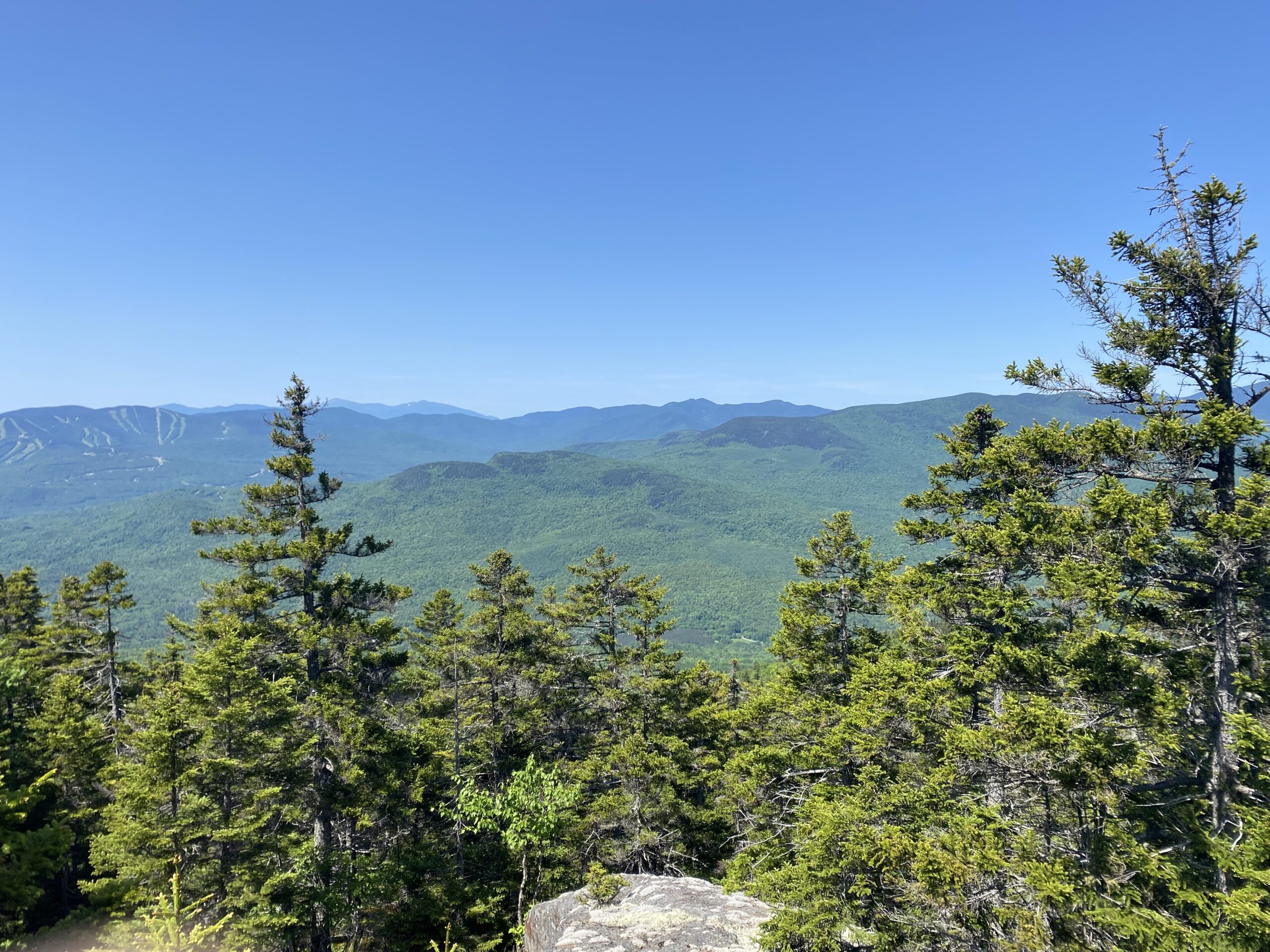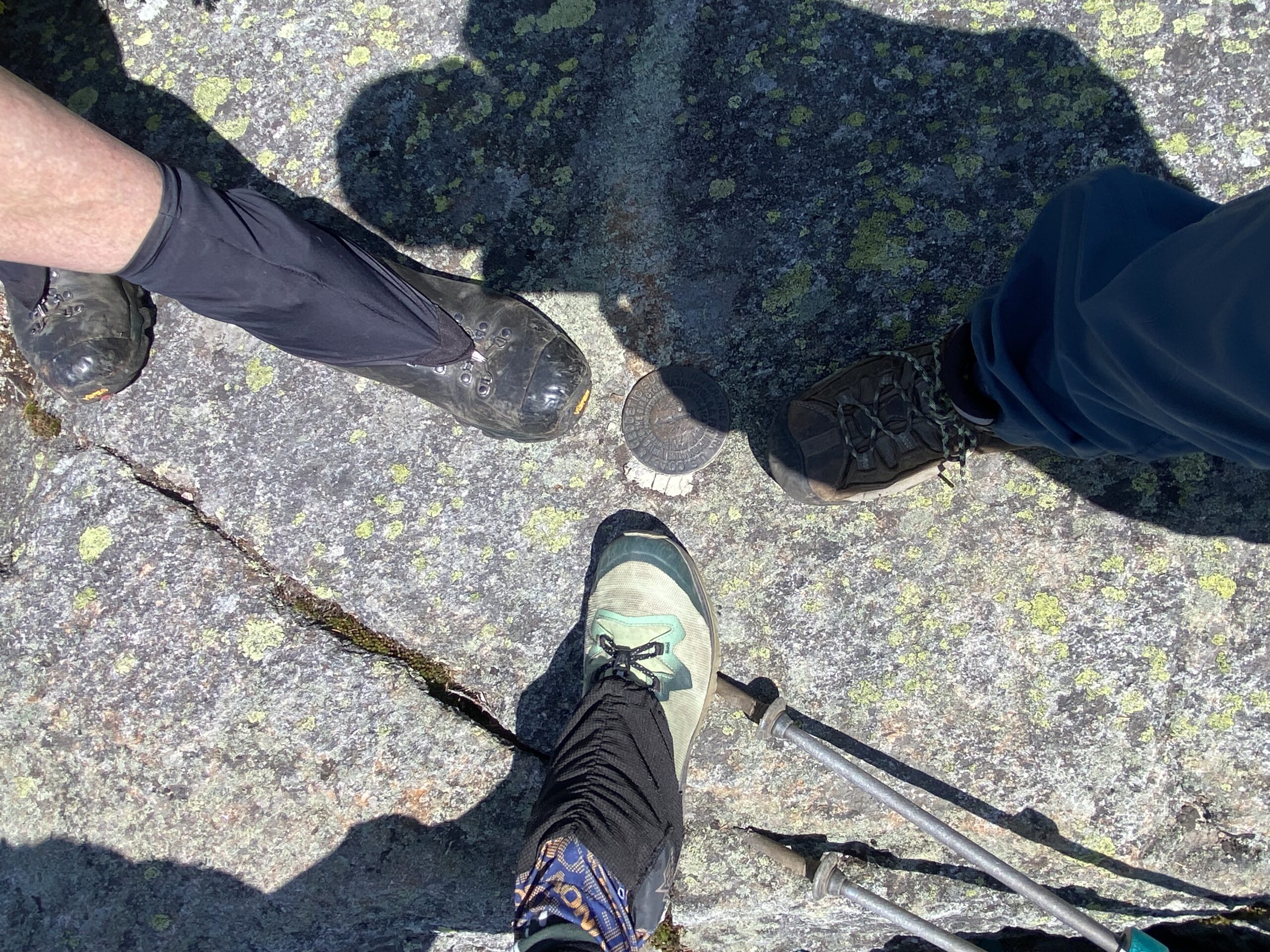MATLT’s Bald Mountain Pond property is a wonderful spot on Maine’s Appalachian Trail. With an undeveloped shoreline and the A.T. running along the north shore, it’s a hidden gem for hikers, paddlers, hunters, fisherman, and more. It’s also one of the most ecologically important areas in Maine with values like high climate resilience and matrix forest blocks. It’s also a haven for rare and threatened wildlife species – like the Canada lynx. This reclusive species is federally listed as threatened but is well established in Maine due to plentiful habitat (boreal forests). And yet Canada lynx are rarely seen in the north woods.
It’s always a special moment to have that lynx sighting but not everybody has had that joy. But the next best thing is a documented sighting and thanks to MATLT friend Matt Foster (who has permission to have a game cam on the property) we can see this Canada lynx on the Maine Appalachian Trail Land Trust’s property. Scroll through to see the series as the lynx crosses the stone bridge.
And be sure to head out there for a chance sighting of your own!

